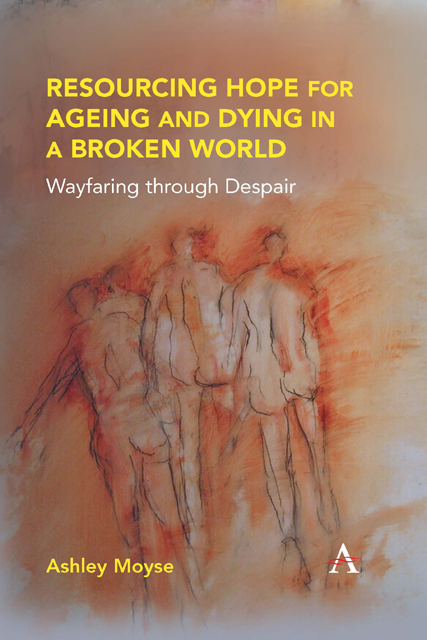Book contents
Afterword
Published online by Cambridge University Press: 10 January 2023
Summary
The care of vulnerable patients is for sale to the highest bidder and the one who technologises the process most innovatively reaps the greatest profit. Or so it seems.
Why are the first three-quarters of this wonderful little book so difficult for me to read? Because as a practising physician, they ring true. Too true. And they ring tragic, perhaps, in the way John Donne describes funeral tolling. For whom does the bell toll? Donne asks. Who has died? Why, the care of the sick and dying, of course. We have chased the sacred out of those practices. Ashley Moyse seeks to restore it.
In my mind I divide the book into two parts: Chapter 4 and everything else. If ‘everything else’ is the diagnosis, Chapter 4 is the antidote and a potent one at that. Jeffrey Bishop says, ‘diagnosis is easy; therapy is difficult’. Therefore, before we get ahead of ourselves and consider the merits of Moyse's treatment, let's consider briefly the diagnosis articulated in the ‘everything else’.
Modern medical practice prizes certainty and exactitude. That which can be measured has value and status. She is in stage IV kidney failure, but the kidney function is a bit better today, we doctors say. Or: the tumour, a hepatocellular carcinoma, shrunk by 2 mm. It is by contrast difficult to articulate the depth of a physician's compassion or the profundity of her integrity, so we elect to discuss kidney function and tumour size over compassion and integrity. The latter sounds nice on patient brochures and hospital advertising schema. But the virtues rarely feature in formal teaching during daily rounds on the medical wards.
Valuing the measurable means that functional, technological solutions will necessarily attract the greatest attention. If a pill or procedure can improve nutritional status, let's pursue it. We can measure nutritional status by checking bloodwork. A registered dietician can count the calories a patient consumes. We can prescribe an appetite stimulant. If that fails, we can place a nasogastric tube. If that fails, we can attempt total parenteral nutrition through a fancy sort of intravenous line. If that fails, we can place a percutaneous gastrostomy tube through the wall of the stomach and directly pump in liquid nutrition.
- Type
- Chapter
- Information
- Resourcing Hope for Ageing and Dying in a Broken WorldWayfaring through Despair, pp. 131 - 134Publisher: Anthem PressPrint publication year: 2022



